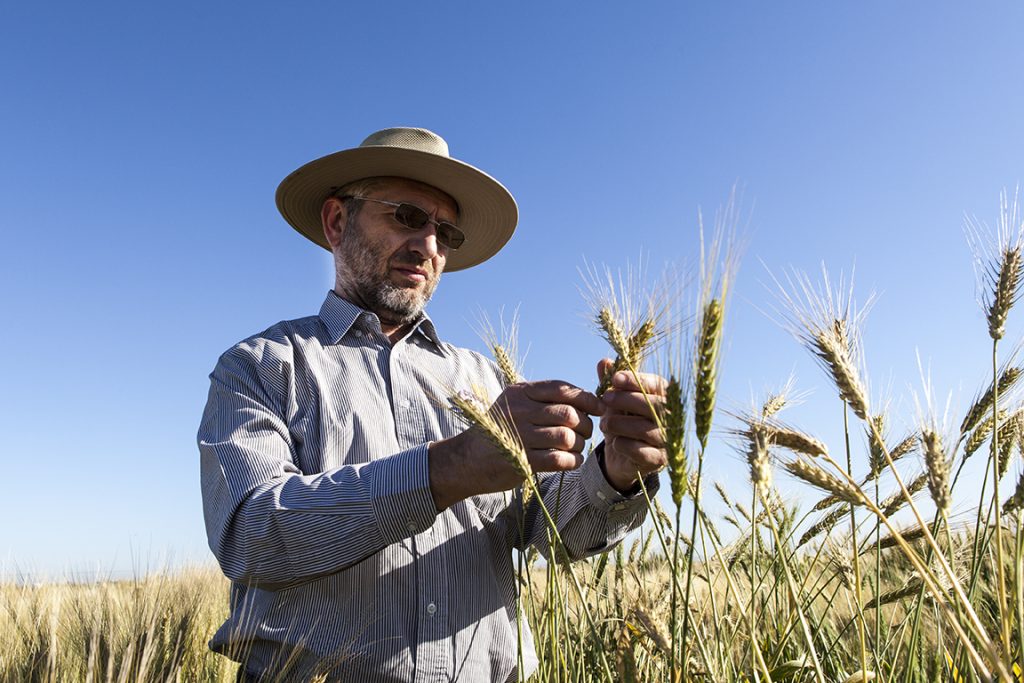EL BATAN, Mexico (CIMMYT) — Mexico’s most prestigious scientific association has welcomed Matthew Reynolds among its regular members after accepting the nomination presented by fellow member, Alfonso Larqué Saavedra from the Yucatan Scientific Research Center.
The Mexican Academy of Sciences is an independent and not-for-profit association formed by acknowledged scientists working in both Mexican and international organizations. Its main objective is to offer expert advice to address the most pressing issues and challenges confronting Mexico’s government and civil society.
“I am deeply honoured to be recognized by the Academy,” Reynolds said. “Mexico has a proud tradition of scientific achievements including those of its pre-Hispanic civilizations, and not least in crop science. It is my hope that I can continue to contribute to Mexican agriculture and capacity building, especially in helping to buffer the effects of climate change. I am also very grateful for my long association with Professor Larqué Saavedra with whom I jointly supervised my first Mexican graduate student at Colpos and who nominated me for this position.”

Reynolds is a Wheat Physiologist at International Maize and Wheat Improvement Center (CIMMYT). His leadership of the Wheat component of the MasAgro project strengthened his nomination to the Academy. In this capacity, he has overseen the publication of 32 peer-reviewed articles in scientific journals that account for the progress achieved in the development of new high-yielding and resilient wheat varieties for Mexico and for other wheat-growing regions in the developing world.
Since 2011, MasAgro Trigo has characterized 71 thousand wheat lines in field trials designed to test yield potential under severe stress caused by heat and drought conditions. As a result, Reynolds and his team have formed the Wheat Yield Collaboration Yield Trial and the Stress Adaptive Traits Yield Nursery, two panels of elite lines that yield more grain in high temperatures and under limited water supply. Mexico’s agricultural research system INIFAP has recently incorporated 42 elite lines from these nurseries into its wheat-breeding program.
Reynolds has also mentored 12 Mexican students who have undertaken postgraduate studies under the supervision of renowned wheat scientists in American, Australian, British, Chilean and Spanish universities. Eight students have already achieved a PhD degree in different areas of wheat research. This new generation of scientists will further contribute to promote science and research in Mexico, one of the Academy’s main objectives.

